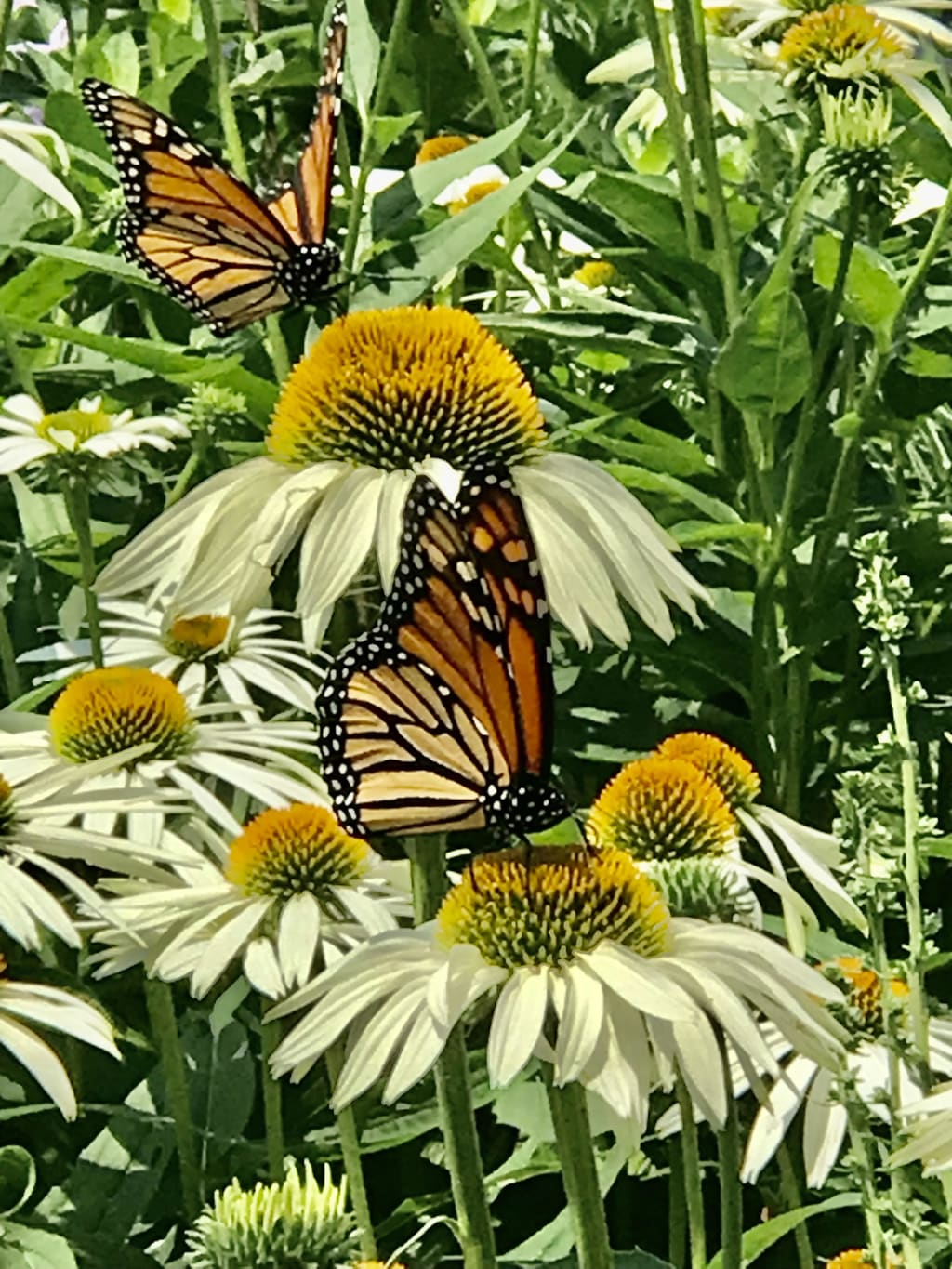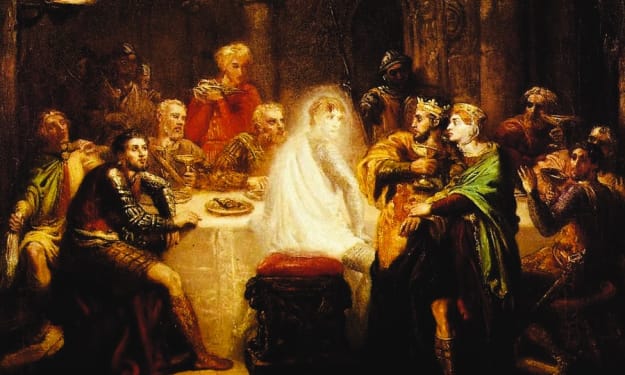Radical Amazement
Finding the Extraordinary in Ordinary Moments

Since I began writing haiku, I've found guidance in the teachings of an amazing teacher. No, it's not Bashō or any other renowned haiku master. It's Rabbi Abraham Joshua Heschel, a religious philosopher who marched alongside Dr. Martin Luther King Jr., Amelia Boynton, and John Lewis at Selma. In reflecting on that historic march, Heschel said, "Our march was worship. I felt my legs were praying" (Stern). According to Heschel, contemporary Western society lacks the sense of wonder and awe essential for spiritual growth (Heschel). He advocates for living with “radical amazement,” —no doubt linked to the idea of emuna or living in the presence of Hashem-- urging individuals to view the world through fresh eyes each day and acknowledge the extraordinary in the ordinary: "Our goal should be to live life in radical amazement... Get up in the morning and look at the world in a way that takes nothing for granted. Everything is phenomenal; everything is incredible; never treat life casually. To be spiritual is to be amazed" (Heschel). This concept of “radical amazement” has become the cornerstone of my creative process, leading me to explore the haiku of poets such as Chiyo-ni, Shiki, and Santōka Taneda, whose haiku embody the ideas described by Rabbi Abraham Joshua Heschel - the ability to view the world with a sense of wonder and discover profound beauty and meaning in everyday moments.
Chiyo-ni, born in Matto, Kaga Province (present-day Hakusan, Ishikawa), Japan, from 1703 to 1775, was a female haiku poet renowned for her spiritual connection to nature (Goldberg). Despite facing gender-based discrimination from haiku traditionalists like Buson, who dismissed her work as "woman's haiku, weak and emotional," Chiyo-ni emerged as a celebrated poet in her own right (Goldberg). Her delicately crafted poems celebrating the splendor in humble aspects of life establish her as an exalted figure for women poets.
The morning glory!
It has taken the well bucket,
I must seek elsewhere for water.
In this verse, Chiyo-ni presents a seemingly mundane occurrence—a morning glory flower entwined with a well bucket—yet infuses it with profound significance. The morning glory's disruption echoes the essence of "wabi-sabi," emphasizing the acceptance of imperfection, impermanence, and the beauty of the understated and unpretentious. Her haiku also exemplifies the Zen Buddhist principle of non-interference or "not disturbing the universe." She gracefully accepts the disruption caused by the flower and acknowledges the need to seek water elsewhere without attempting to manipulate or control the situation.
Masaoka Shiki (1867-1902) is a pivotal figure in the evolution of modern haiku. As a visionary poet, Shiki played a transformative role in reshaping the landscape of haiku, infusing it with new perspectives and techniques such as the concept of "sketch from life," which emphasized direct observation and vivid portrayal of everyday experiences in haiku. Despite battling tuberculosis from a young age, Shiki's dedication to his craft remained until his premature death at 35. His haikus, characterized by their observations of nature, evoke a sense of wonder:
Flutteringly,
Floating in the breeze,
A single butterfly.
Through carefully chosen words such as "flutteringly," "floating," and "breeze," Shiki paints a vivid picture of a butterfly gently drifting through the air. With its brief lifespan and delicate wings, the image of the butterfly becomes a sublime meditation on his reverence for nature.
Especially in the early years of haiku, the influence of Zen Buddhism's teachings about enlightenment and satori left an indelible mark on the art form. Santōka Taneda (1882–1940), whose haiku, despite not conforming to traditional rules, echoes the Zen Buddhist enlightenment principles (satori). Though unorthodox, Taneda's haiku distill satori's essence. His unconventional haikus brim with awe.
In the coolness
of the empty sixth-month sky...
the cuckoo's cry.
Taneda's haiku depicts a serene summer sky suddenly disrupted by a cuckoo's cry and is reminiscent of Bashō’s famous haiku, “An old silent pond/ A frog jumps into the pond, splash!/ Silence again.” However, in Taneda's verse, it is the cuckoo's call and not the silence of the universe that remains.
The work of poets such as Chiyo-ni, Shiki, and Taneda embodies the “radical amazement” advocated by Rabbi Heschel, which transcends race, creed, time, and ethnicity. These poets, through the meticulous selection of vivid sensory details--the cadences of birds, the beauty of flowers, and the butterflies' flight--urge us to cultivate the capacity for "radical amazement" and remind us that marvel exists in our backyards.
Works Cited
Goldberg, Natalie. "The Sad Beauty of Chiyo-ni." Tricycle: The Buddhist Review, Spring 2021, https://tricycle.org/magazine/chiyo-ni-haiku/. Accessed 22 Feb. 2024.
Heschel, Abraham Joshua. "Abraham Joshua Heschel: A Prophet's Prophet." My Jewish Learning, https://www.myjewishlearning.com/article/abraham-joshua-heschel-a-prophets-prophet/.
Stern, Stephen. "Never Again: Praying With Our Feet and Abraham Joshua Heschel." The Times of Israel, https://blogs.timesofisrael.com/never-again-praying-with-our-feet-and-abraham-joshua-heschel/.
"Teachings of Rabbi Abraham Joshua Heschel." Jewish Ideas, http://www.jewishideas.org/articles/teachings-rabbi-abraham-joshua-heschel.
"The Morning Glory!" by Kaga no Chiyo. All Poetry, https://allpoetry.com/The-Morning-Glory!. Accessed 22 Feb. 2024.
“Masaoka Shiki and his haiku poems in English and Japanese.” Masterpieces of Japanese Culture, https://www.masterpiece-of-japanese-culture.com/literatures-and-poems/haiku/masaoka-shiki-haiku-poems. Accessed 22 Feb. 2024.
"The Cuckoo's Cry." by Santōka Taneda. The Zen Universe, https://thezenuniverse.org/10-poems-eihei-dogen-zen-poetry-verses-mountain-eternal-peace/. Accessed 22 Feb. 2024.
About the Creator
Geoffrey Philp
I am a Jamaican writer. I write poems (haiku & haibun), stories & essays about climate change, Marcus Garvey, music icons such as Bob Marley, and the craft of writing through personal reflection & societal engagement.






Comments
There are no comments for this story
Be the first to respond and start the conversation.